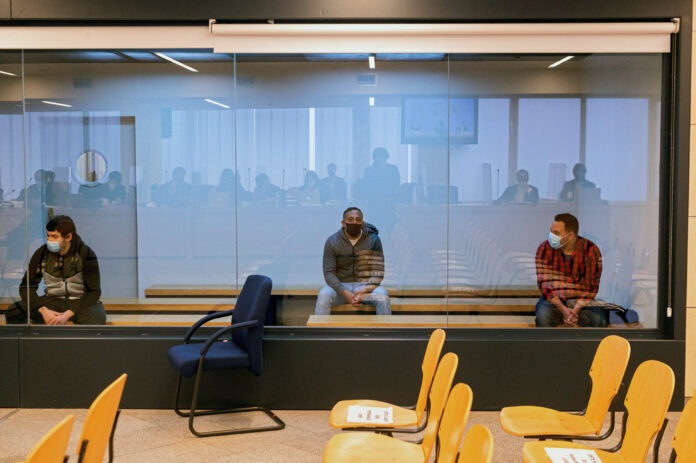The Appeals Chamber of the National Court has rejected the request of two convicted for belonging to the cell that perpetrated the attacks in Catalonia in 2017 that the Atristain doctrine be applied to them, with which the Strasbourg court questioned the validity of the statements of incommunicado detainees.
The court rejects the annulment of the proceedings requested by Mohamed Houli Chemlal and Driss Oukabir, sentenced to 53 and a half years and 46 years in prison, respectively, considering that their rights were not violated by declaring them incommunicado after their arrest.
The Court of Appeal recalls that Strasbourg exceptionally admits the annulment of the detainee’s right to have legal assistance of his choice if, in the interests of justice, there are pertinent and sufficient reasons to consider it necessary. In particular, in cases of terrorism and with a reasoned judicial decision regarding the specific case of incommunicado detention, as, according to the Appeals Chamber, occurred in this case.
The court emphasizes that what is relevant is to determine whether the right to defense has been “irremediably harmed” because the incriminating statements have been made in a police interrogation without legal assistance and can serve to convict him. or that the evidence obtained as a result of these statements at the police station constitutes an important part of the material evidence on which the conviction is based.
In the present case, the Chamber concludes that these statements in no way support the condemnatory pronouncement of the National High Court. “The detainee limited himself to giving unclear information, justifying his sentence on evidence obtained entirely outside of those statements, even though some of this evidence may serve to corroborate some aspect of what was declared, but without there being a causal link between the statement and the other evidence obtained through other indications and evidence”, affirm the magistrates.
They recall that even in the case of ETA member Xabier Atristain, who gave the doctrine its name, the Supreme Court refused to review his sentence, considering that it had not been essentially based on the terrorist’s statement while he was incommunicado.
The Appeals Chamber, which reviews the sentences handed down by the four sections of the Court’s Criminal Chamber, has yet to resolve the appeals of those convicted of the attacks in Catalonia. When Strasbourg announced the sentence on Atristain, the defenses of Chemal and Oukabir presented an extension of the appeals to request the immediate application of the doctrine.
The extension was dismissed for being submitted after the deadline, in resolutions in which the magistrates recalled that the Atristain doctrine is based on rights that were already recognized before the trial was held and that the defense could have used, as it did in its Atristain’s day. Against this inadmissibility of the extension of the resources, the defenses presented an appeal, which is the one that has now been resolved.
The orders rejecting the requests of the defenses have been dictated by the magistrates José Ramón Navarro Miranda (president of the National Court), Manuela Fernández Prado and José Ramón González Clavijo.
Conforms to The Trust Project criteria








